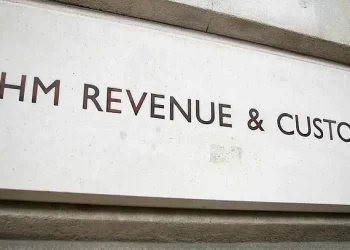HM Revenue & Customs (HMRC) has initiated a campaign to tackle money laundering through informal money transfer networks like Hawala, which criminals exploit to launder an estimated £2 billion annually. This initiative aims to protect diaspora communities in the UK by urging businesses to register for anti-money laundering supervision.
Understanding the Campaign
The HMRC’s campaign is crucial as it addresses the vulnerability of informal money transfer systems, which are often exploited by criminals.
These systems are essential for many UK residents who rely on them to support family members abroad, especially in regions with limited access to conventional banking services.
By encouraging businesses to register for anti-money laundering supervision, HMRC aims to safeguard these vital services and ensure they remain secure and legal.
Community Impact and Legal Obligations
The impact of this campaign extends beyond financial security; it affects the daily lives of those who depend on these services.
For individuals using informal networks like Hawala, registration ensures that their transactions are not inadvertently supporting criminal activities.
This move also emphasizes the importance of operating within legal frameworks, protecting both businesses and communities from exploitation.
Efforts and Strategies
- Utilizing community radio and digital advertising for outreach
- Engaging local operators about their legal obligations
- Highlighting the importance of registration with HMRC
- Aiming to prevent organized crime funding through these networks
- Ensuring compliance with anti-money laundering regulations
The Bigger Picture: Global Implications
This initiative by HMRC could set a precedent for other countries facing similar challenges with informal money transfer systems.
The UK’s efforts highlight the need for international cooperation in combating financial crime, emphasizing that regulation is key to preventing global money laundering activities.
A Word from Louise McDonald
“Informal money transfer networks, like Hawala, enable people to support family members in parts of the world where conventional banking is limited,”
said Louise McDonald, Deputy Director for Economic Crime at HM Revenue & Customs.
“These are vital services that we want to protect from criminal exploitation. When criminals launder money through these networks, it funds serious organised crime that directly harms the very communities these services support.”
Additional Reading
To Sum Up
The HMRC’s campaign against money laundering through informal networks underscores a critical step towards safeguarding communities reliant on these services.
By promoting registration and compliance with anti-money laundering regulations, this initiative not only protects legitimate businesses but also strengthens community resilience against organized crime.
Discover more of Todays Top Breaking News Stories!
Sources: HM Revenue & Customs (HMRC), Financial Action Task Force (FATF), and HMRC.
Ivan Alexander Golden, Founder of THX News™, an independent news organization dedicated to providing insightful analysis on current events, prepared this article.









